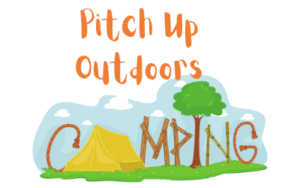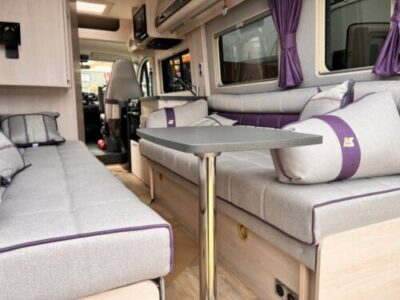This post contains affiliate links.
Whether you are tent camping or travelling in a campervan, both have their own communities on site. Although I have found that owners of campervans love to show off the home on wheels.
However, both have their own pros and cons. So if you are considering moving away from tent camping or combining your holidays with a campervan. You need to consider What are the good and bad points of campervans and tent camping?
Campervans provide a sense of security, serving as a home away from home and shielding you from the elements. They come with a costly upfront investment and ongoing maintenance, insurance, and fuel expenses. Tent camping offers a more budget-friendly option, allowing you to get closer to nature. Though it can be stressful at times, pitching tents and being more susceptible to weather conditions.
Consider the trade-offs between the comfort, convenience of campervans and affordability.
What are the good points of owning a campervan?
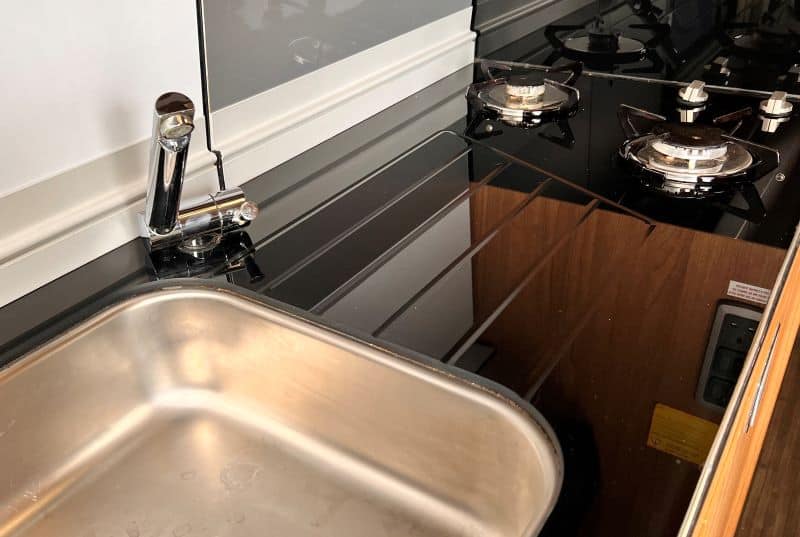
- Comfort and convenience: – If you enjoy exploring in comfort, campervans are the ideal solution compared to tent camping. They provide a cosy living space, kitchen and comfortable beds. Depending on the type of campervan, the beds can be converted into chairs or left as permanent beds. Built-in kitchenette and toilet facilities offer convenience to your travels and remove any restrictions to where you can go.
- Protection from elements – There is better protection against the elements, including rain, wind, and extreme temperatures. There are no restrictions to the time of year you can explore in your campervan. If the weather is bad, you do not need to worry about potential leaks in your vehicle compared to a tent. You can be nice a snug inside your campervan.
- Freedom to explore – You can travel more freely and not worry about booking a campsite, providing you have the available facilities in your campervan. Depending on the time of year in Scotland, you can park your campervan and stay the night in rural areas. Providing it is not private land. Be aware of the byelaws in Scotland before you travel. Read our article for more information on laws and restrictions so you do not find yourself in trouble. Wales, you park in most laybys. You will need to check the area for restriction signs for overnight stays. Giving you the chance to travel further with no worries about having to return to your tent every day.
- Storage space – Depending on the size of your campervan and the design, you have more storage. You feel satisfied when you can put things away, whether clothing, cookery items and general odds and ends. The freedom to bring more supplies without worrying about packing and unpacking a tent.
- Security and safety – Campervans make you feel safer a night, especially if you have smaller children. Removing the fears of them wondering without you realising. You can leave personal possessions inside your campervan without worrying about them being taken. Although you do need to place them out of view and lock your doors.
- Privacy – Not having to worry if people can see you getting changed or moving around inside your tent, especially at night. Comparing campervans to tents, you automatically feel like you have more privacy because of the metal shell that encloses you.
- Great for a light sleeper – If you wake up at every noise, whether from nature or other campers, campervans will help give you a better night’s sleep. Campervans offer soundproofing not only from outside noise but noise from the inside.
- Great for solo travellers – If you are travelling by yourself and don’t feel 100% safe camping in a tent, mini campervans are a great way to push those fears away. Locking yourself inside a vehicle at night makes you feel secure and safe.
What are the bad points of owning a campervan?
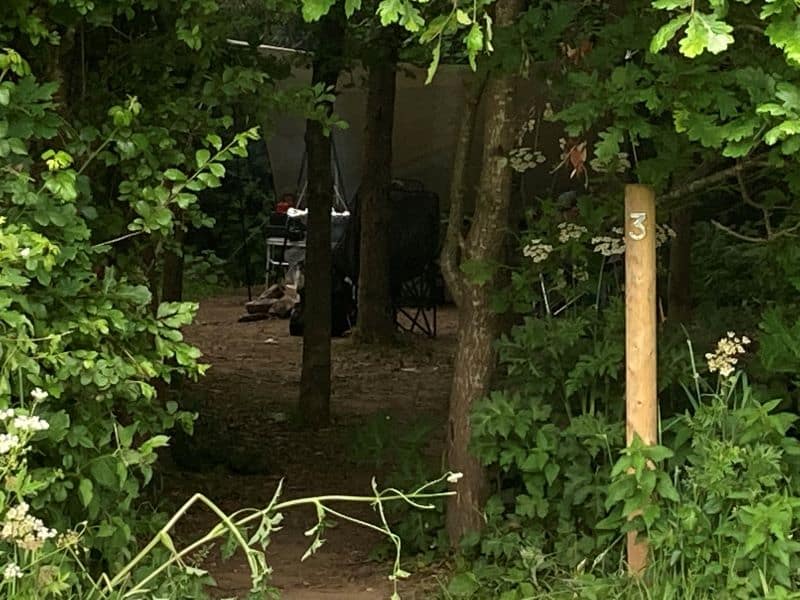
- Tiredness – Continuously driving can be tiring, so planning your trip carefully is important. Driving can become dangerous if you are always on the road and do not give yourself a few days to rest fully between journeys.
- Access to waste disposal facilities – If you have wastewater facilities in your campervan, you will need access to waste disposal. This will have an impact on where you travel.
- Cost of buying and running – Campervans are expensive to buy. They have increased in price due to the increase in popularity and second-hand vehicles. If purchased via finance, you must ensure that you have not overstretched your budget and can comfortably afford it. Including running costs and maintenance of the campervan or motorhome.
- Hidden costs and considerations – There are hidden costs of owning a motorhome, not just running and initial buying costs. You need to consider breakdown cover, storage and additional costs. For the first 5 years of road tax, if your vehicle is over £40,000, there is an extra fee of £360 per year. We have a full list of items, potential costs, and what to consider before buying a campervan.
- Issues with finding campsites – You would assume that you can set up a campervan or motorhome anywhere on a campsite. It is not always the case. Many campsites have limited spaces, so you may miss out on that perfect campsite.
- Limited locations in the UK for off-grid – Everybody dreams of jumping in a campervan exploring. In the UK, it is illegal to camp or park in a layby overnight. It is not the same as in other countries, that you can park up most nights without any issues.
- Restrictions on what you can drive – You need to check your driving licence for the weight of the vehicle you can drive. There are restrictions on weight from 3,500kg depending on when you passed your test. This includes overall combined weight.
- Lack of suitable parking – It can be difficult when shopping or visiting attractions to find an area suitable for parking. Bays can be tight, and some places will not allow campervans. Research before you go so you don’t get caught out.
- Need access to fuel – You will need access to fuel to explore, so you need to be aware of where they are. This will restrict where you travel. Plus, prices vary depending on location. Motorway services can be 20p – 30p extra per litre as an independent local fuel provider. I use the Petrol Prices app, which is free, and will tell me all the local fuel prices in the area. This will help you plan your journey.
What are the good points of tent camping?
- Great for a limited budget – Camping is ideal if you have a limited budget. You can camp with the basic facilities. You don’t need a massive tent or lots of furniture to enjoy a budget friend camping trip. When I first started camping, I used a £45 tent and brought most of the other items from my home to keep costs down.
- Confidence building is a good way to build confidence in yourself and your children. Allowing them more freedom to play with other kids away from their normal friends. Also, exploring and allowing them to take the lead.
- Back to nature – You can immerse yourself fully in nature. Although, at first, it can be a bit scary. Listening to the sounds a night, learning how to start safe fires, and basic cooking facilities without all of the mod cons from home.
- Flexibility and freedom – You have more freedom to find out-of-the-way campsites and wake up to some amazing views. Pitch your tent in semi-wild campsites in the middle of the forest or on secluded beaches.
- Learn outdoor skills – Camping allows you and your family to learn outdoor skills. From pitching a tent to navigating and exploring the unknown. It allows you to try things you would not normally do during the day while sleeping under the stars.
- Connecting with others – The camping community is friendly and helpful. Obviously, you get the odd few, but it is very rare. I have lost count of how often I have sat around a campfire with strangers whilst Nick has gone off to play with other children.
- Creating memories – Returning to basics can create amazing memories for you and your family. It allows you to move away from the stressful life. Giving you time with your children. It did for Nick and me, I never realised until we started camping how much of him growing up I had missed.
What are the bad points of tent camping?

- Open to the elements – You will need to prepare for rain, wind, and varying temperatures. Unpredictable weather can sometimes dampen the experience and require extra gear for protection.
- Lack of comfort – Camping is not always comfortable. Beds can deflate, and it can be cold during the night. It’s worse if you have to go to the toilet in heavy rain or wind. Trying to get warm and dry when you return to bed can be a pain. A campervan removes the lack of discomfort. However, it does depend on the type you have or intend to own.
- Pitching and packing away – Campers often joke that this is the most stressful part of tent camping. For me, it is, as my son does not want to help and is tired and bored. It often ends with me becoming a bit snappy with him. We make up in the end, but trying to sort everything out is stressful at the time.
- Must have essentials – Make a list and make sure you have everything. From food to tent pegs, poles, sleeping bags and cooking facilities. When you forget something, it can have a massive impact on your holiday. I have forgotten tent pegs and pillows. I have known people that forget their tent poles.
- Issues with bugs – If you do not like bugs, tent camping may be hard for you. There are lots, and when you take your tent down, the undersheet will most probably have slugs on, especially if the weather is damp. During summer months, gnats, bees, and spiders are out in force. You must keep food fully covered whilst stored and have fly protectors over cooked food.
- Damage to equipment – Camping gear can get damaged. Especially if high winds, I have had a windbreak pole snap, although we were camping on top of a cliff top in about 40mph winds. Air beds or sleeping pads can get punctured, and items can easily get lost. Especially tent pegs. It is surprising how many you can find laying around a campsite. You can have camping gear insured, especially a tent. The tent has to be under 2 years old and must have been purchased new from a retailer to qualify. Insurance can cost from £12 plus, but it can give you peace of mind, especially if your tent is worth £800 plus. Read our article about tent insurance, some insurances will arrange for accommodation or re-reimburse you for your holiday if it is cancelled or transport breakdown.
- Cooking in the elements – Cooking in the comfort of your home is much easier than cooking outside. Cooking on a gas stove can be hard as you must monitor the flame and keep it out of the wind. If you use EHU, you must cook undercover for safety if the weather does not look good. It can be very restrictive, and you have to learn to cope with the situation as it happens. Or, as I have seen many people do, order a takeaway and have it delivered to the site or visit a local restaurant.
Related questions
What are the drawbacks of campervans in terms of limited campsite options?
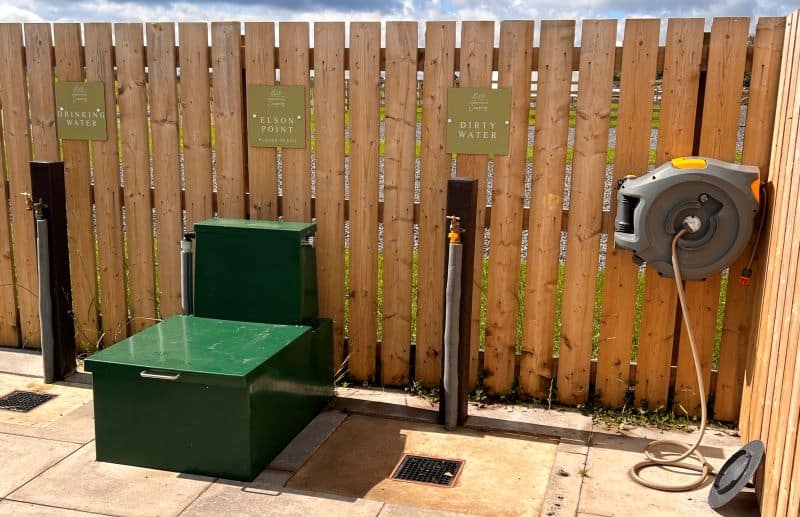
There are several drawbacks when booking a campsite for a campervan or motor home.
- Campsite will have limited pitches available, as they prefer campervans to be on hard-core pitches rather than grass.
- No waste disposal facilities.
- Limitation on the size of the campervan or motorhome.
- It does not always have the most scenic view compared to tent camping.
- If you rely on EHU, this will restrict the bookings available.
- Not as close to nature in a vehicle compared to a tent.
Can you use a campervan all year round on a campsite?
Campervans have more flexibility in the number of months that they can pitch at a campsite. 60% of campsites will keep their sites open if they have hardcore campervan areas. Whereas for tent camping, the campsites normally shut in November and reopen in March.
It is dependent on the campsite. However, many will stay open as it helps with their cash flow. Rates are normally lower for out-of-season camping, giving campervans the perfect opportunity to explore and see some amazing countryside. Campsites will be quieter during this time, enabling you to relax and enjoy the surrounding environment.
What are some alternative options for camping accommodation beyond campervans and tents?
Excluding hotels, there are other alternatives, from campervans and tent camping.
- Glamping pods – A most common form of glamping is the everyday pods. There are standard structures with a bedroom and cooking area. They are increasing in popularity, and higher-end pods will have shower and toilet facilities.
- Log cabins – Wooden structures, either single or double-storey. Different facilities include separate bedrooms, lounge and kitchen areas with decking outside. Others have a standard bedroom area and cooking facilities outside. Bothe with electrical connections and heating.
- Hammock camping – Portable suspended shelters provide a comfortable and elevated sleeping experience. Allowing you to enjoy the natural surroundings from a different perspective. Normally used in wild camping in the forest. Although there are many campsites with wooded areas that allow hammock camping.
- Trailer tents – A towed trailer that combines the features of a trailer and a tent. It folds out, providing a canvas shelter. The sides extend, offering a bedded area with built-in furniture in the middle and a seating area.
- Mobile or static caravans – Either static rental or own your own caravan and tow to a campsite. Various sizes are available depending on the berth required. Home away from home, with all facilities, although you will need an EHU connection.
- Yurts and tipee glamping – Luxery end of camping. Canvas tent with beds, carpet other bedroom furniture. Everything that will make it feel like your own bedroom. Often with a private shower and toilet facility and outside cooking area.
